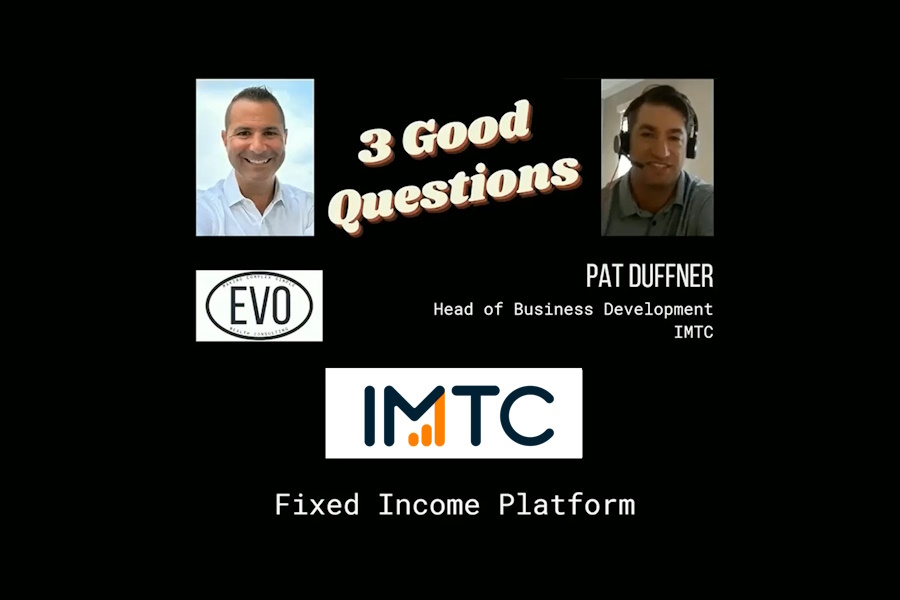Active to Passive: Technology is Transforming the Asset Management Landscape

As investment managers continue the shift from active to passive fund management, widespread adoption of InvestTech solutions will follow. The active to passive evolution has already led to a spike in companies formally delegating roles related to digital transformation in a bid to drive growth by addressing traditional, analog business functions with digital and tech-forward approaches through the utilization of data and online systems.
In addition to regulation that requires greater transparency surrounding fees to strengthen investor protections, the growth of more cost-effective passive investing platforms has also caused asset managers to shift their fee structures to remain competitive. Investment and asset managers like BlackRock and Vanguard have increased fee pressure by providing investors with the option to invest in vehicles that offer little to no fees and great returns.
Asset managers have struggled to remain competitive in a landscape that is facing increased pressure from the combination of fee competition, rising costs and asset growth. Ben Phillips, a principal and investment management chief strategist at Deloitte Consulting, told Bloomberg “[This is] a really bitter cocktail for an industry that never had to worry about fixed costs, fees or money showing up.”
Despite their past success, active funds have decreased in popularity among investors due to their high fees and lack of performance. According to Morningstar, only three of the top 10 funds worldwide are actively managed. Bloomberg data revealed that Fidelity’s highest performing active fund (Fidelity Contraband) saw an outflow of over $93bn, while its highest passive fund (Fidelity 500 Index Fund) received an inflow of about $124bn in the past year. Moody’s Investor Services released a statement in March, predicting that “index funds are poised to overtake active management in the US by 2021.” Only time will tell if this prediction will come to pass, but trends in the current economic environment are already supporting investments in passive funds over their active counterparts.
Emergence of WealthTech
An up-and-coming solution to these trends across the investment management space is WealthTech—the creation of technology-based solutions specifically tailored to the wealth management space. Forbes defines WealthTech as a subset of FinTech that combines wealth and technology with the goal of providing digital solutions to enhance personal (and professional) wealth management and investing. WealthTech has already spurned the invention of several niche solutions that have allowed firms to adapt to a low-fee environment and to target different client demographics than they might usually attract.
For example, the emergence of robo-advising solutions has garnered investor interest due to their low fee structure (0.25% commission) and low-to-no account minimum. These innovations, which utilize algorithms to provide investors with digital financial advice based on risk tolerance and goals, could be the answer to the industry-wide shift from performance-based to goals-based investment management, according to BCG’s report Global Wealth 2019: Reigniting Radical Growth.
PwC stresses that the emergence of alternative asset managers will also play a role in broadening the product range that was initially dominated by banks. However, as alternative asset managers fill the product offering void, there will be a period of sustained product regulation. PwC reports that addendums to the Dodd-Frank and AIFMD transparency reporting will be accompanied by shadow banking legislative initiatives (that began in 2014 and 2016), for example.
To read more about technology trends and the shifting innovation landscape, download our State of the Industry whitepaper.
This paper is intended for information and discussion purposes only. The information contained in this publication is derived from data obtained from sources believed by IMTC to be reliable and is given in good faith, but no guarantees are made by IMTC with regard to the accuracy, completeness, or suitability of the information presented. Nothing within this paper should be relied upon as investment advice, and nothing within shall confer rights or remedies upon, you or any of your employees, creditors, holders of securities or other equity holders or any other person. Any opinions expressed reflect the current judgment of the authors of this paper and do not necessarily represent the opinion of IMTC. IMTC expressly disclaims all representations and warranties, express, implied, statutory or otherwise, whatsoever, including, but not limited to: (i) warranties of merchantability, fitness for a particular purpose, suitability, usage, title, or noninfringement; (ii) that the contents of this white paper are free from error; and (iii) that such contents will not infringe third-party rights. The information contained within this paper is the intellectual property of IMTC and any further dissemination of this paper should attribute rights to IMTC and include this disclaimer.





